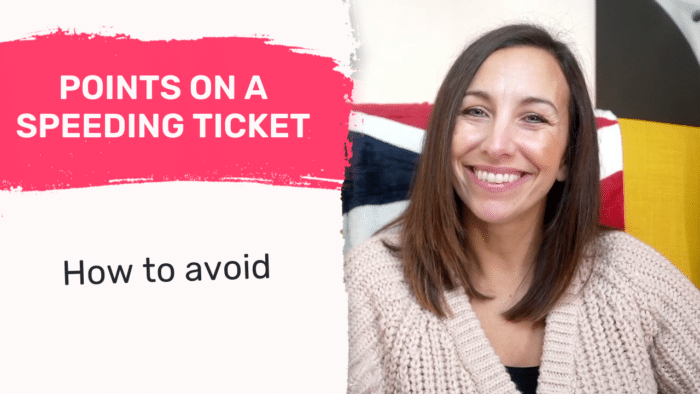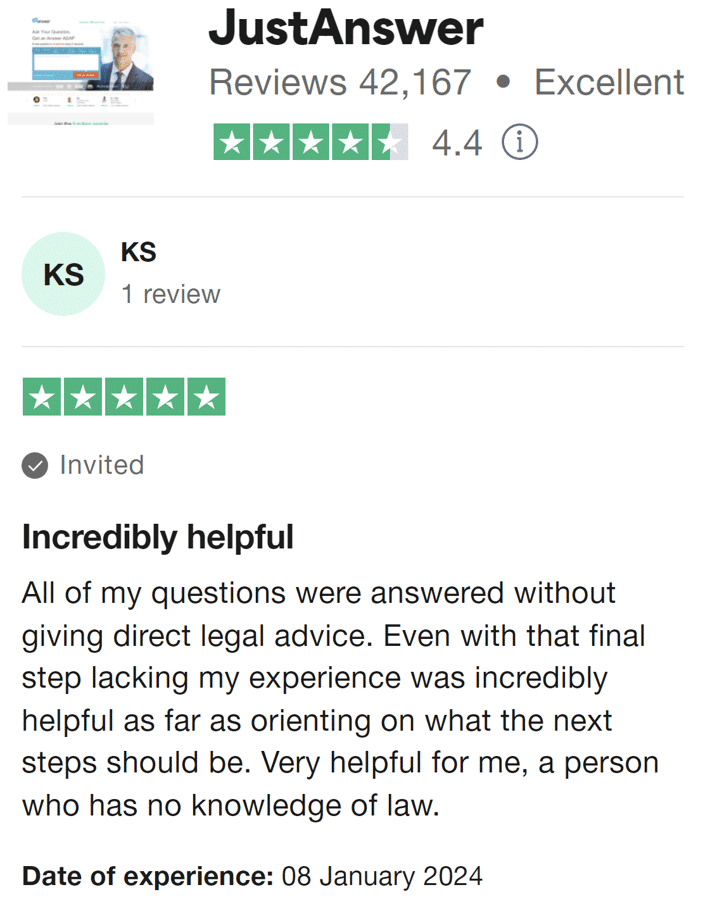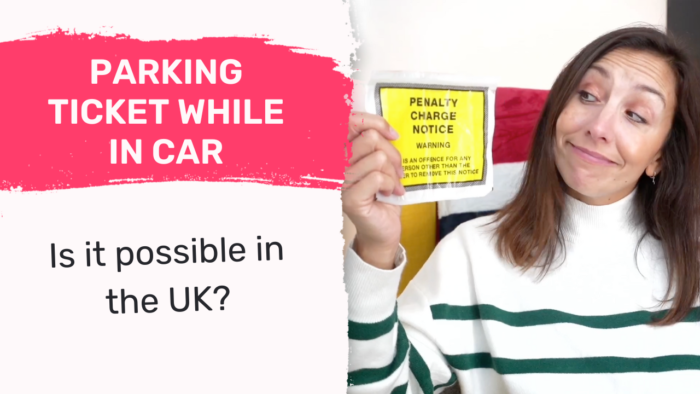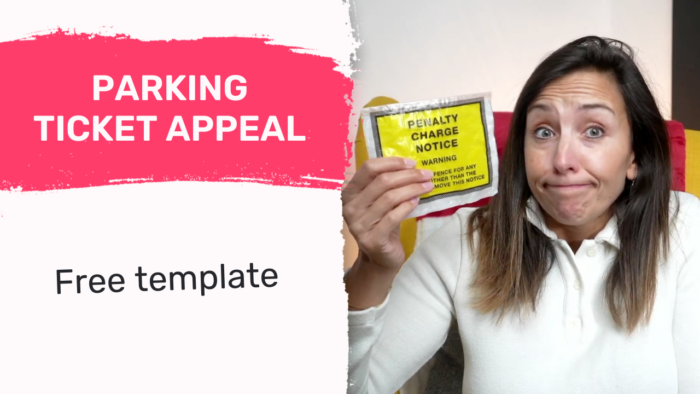How to Avoid Getting Points on a Speeding Ticket

Have you been given a speeding ticket? You are not alone. Each month, over 32,000 people visit this site for advice on tickets and fines.
It can be scary and confusing, but there’s no need to panic. In this helpful guide, we’ll show you:
- The basics of what happens when you get a speeding ticket
- How to appeal against a speeding ticket and win
- Ways to beat average-speed cameras
- The 14-day loophole that might help you avoid points
- The option of a speed awareness course and who can take it
We know how it feels to get a speeding ticket, and we are here to support you. So take a deep breath, and let’s learn more about how you can handle a speeding ticket.
Do You Have to Pay?
In some circumstances, you might have a legitimate reason not to pay your fine.
It’s a bit sneaky, but the last time I needed legal advice, I paid £5 for a trial to chat with an online solicitor called JustAnswer.
Not only did I save £50 on solicitor feeds, I also won my case and didn’t have to pay my £271 fine.
Chat below to get started with JustAnswer
In partnership with Just Answer.
What happens when you get caught speeding?
The police must follow a strict process when they catch you speeding, whether this be on camera or in person.
The process includes a notice that you will be prosecuted, a mandatory response from the vehicle owner and then either a conditional offer to avoid prosecution in court, or alternatively a court summons.
It’s important to understand this process, which I have explained below…
#1: Notice of Intended Prosecution (NIP)
A Notice of Intended Prosecution (NIP) is exactly how it sounds. It’s a notice to the vehicle owner that they are going to be prosecuted for a motoring offence. This includes alleged speeding offences on all road types.
The NIP can be served in two ways. It can either be served in the post to the registered vehicle keeper as per DVLA records, or it can be served verbally at the side of the road. Ore speeding offences are caught on camera, so more NIPs are sent in the post. Moreover, a police officer who pulls you over can opt for a postal NIP rather than a verbal NIP.
#2: Section 172 Notice
When you receive a NIP in the post, a form will be included called a Section 172 Notice. This form refers to a part of the law that states a driver must provide the correct information of the driver at the time of the alleged offence. This is because the vehicle owner might not have been driving at the time.
The vehicle owner must complete the Section 172 Notice to identify the offending motorists and return it within 28 days. Failure to complete and return a Section 172 is a serious offence that will cause the vehicle owner to be summoned to court for this as a separate offence.
Once this has been received, the police will either send a Fixed Penalty Notice to the driver, or they will be summoned to court.
#3A: Fixed Penalty Notice (FPN)
A Fixed Penalty Notice is a conditional offer to avoid prosecution in court. By accepting a Fixed Penalty Notice, the motorist is accepting fixed punishments but won’t have to appear in court, where they could be given harsher punishment.
Fixed Penalty Notices offer a fine and sometimes penalty points added to your driving record. A Fixed Penalty Notice that includes penalty points is known as an endorsable Fixed Penalty Notice, while a non-endorsable Fixed Penalty Notice doesn’t include penalty points.
All Fixed Penalty Notices for speeding are endorsable and come with an offer of at least three penalty points and a £100 fine, possibly much more. If you get 12 penalty points within any three-year period, you’re given a driving ban of at least six months. This is called a totting-up driving disqualification.
Accepting a Fixed Penalty Notice still means you’re convicted of the offence; it just means you don’t have to go to court and potentially get a bigger fine.
#3B: Court summons
If you reject the conditional offer in a Fixed Penalty Notice you will be summoned to court regarding the alleged speeding offence. Some people don’t get offered a Fixed Penalty Notice, and these drivers will be summoned to court instead.
You’re unlikely to be offered a Fixed Penalty Notice as an alternative to court prosecution when:
- You already have eight penalty points on your licence
- The offence was significant, such as injuring someone, causing death or for excessive speeding
Can I avoid points for speeding?
Yes, it’s possible to get caught speeding and not have penalty points endorsed to your driving record. But this is only possible in limited situations.
You may be able to avoid penalty points by:
- Using the 14-day loophole
- Taking a speed awareness course
- Challenging the speeding offence and winning (very difficult!)
I’ll discuss each of these potential ways to avoid points for speeding in turn below.
Successful Appeal Case Study
Situation
| Initial Fine | £100 |
| Additional Fees | £171 |
| Total Fine | £271 |
The Appeal Process
Scott used JustAnswer, online legal service to enhance his appeal. The trial of this cost him just £5.
| Total Fine | £271 |
| Cost of legal advice | £5 |
JustAnswer helped Scott craft the best appeal possible and he was able to win his case.
Scott’s fine was cancelled and he only paid £5 for the legal help.
In partnership with Just Answer.
What is the 14-day loophole?
The 14-day loophole refers to the police’s obligation to provide the vehicle owner with a Notice of Intended Prosecution (NIP) within 14 days, excluding the day of the alleged motoring offence. It might also be known as the NIP loophole.
If the police don’t provide the Notice of Intended Prosecution within the first 14 days, they cannot prosecute anyone for the offence, even if the driver is 100% guilty. This means the driver will not be summoned to court, can’t be fined and won’t get points on their driving licence.
The only time a NIP doesn’t have to be received in the post is when the police provided a verbal Notice of Intended Prosecution at the side of the road after pulling the driver over.
Can I do a course to avoid points?
Some drivers might be offered to attend a National Speed Awareness Course to avoid a speeding fine and penalty points on their licence. Not everyone will be offered this course.
The course is designed to discourage speeding by educating drivers on the dangers of speeding whilst informing them about related topics, such as stopping distances. There isn’t an exam, but you will have to attend and display a positive attitude throughout. No driving is involved; it’s all theoretical.
How much does a speed awareness course cost?
You will have to pay to attend the course, which is currently £85 but subject to change.
This is cheaper than the minimum £100 speeding fine you will have been offered as part of a Fixed Penalty Notice, and of course, you will avoid penalty points on your licence. Points can hike up your insurance premiums, so there may be more savings by taking the course.
Who qualifies for a speed awareness course?
The criteria to be offered the chance to attend a National Speed Awareness Course instead of a speeding fine and points on your licence, the speeding offence must:
- Be your first within the previous three years
- Have been greater than 10% plus 2mph over the speed limit, but less than 10% plus 9mph over the limit.
To clarify point B, someone who was driving 37mph in a 30mph zone would be above the 10% + 2mph rule (above 35mph) but below the 10% + 9mph rule (below 42mph). So, they would meet this criterion.
What happens if you don’t turn up to a speed awareness course?
You will be summoned to court If you book to attend a speed awareness course to avoid getting points on a speeding ticket but then don’t turn up. At court, you may then be given the maximum fine and penalty points.
If you cannot attend for an unforeseen reason, you should rebook as soon as possible to avoid being summoned to court.
Join thousands of others who got legal help for a £5 trial
Getting the support of a Solicitor can take a huge weight off your mind.
Reviews shown are for JustAnswer.
Is it better to accept the points or take a speed awareness course?
Some people don’t want to take the time to attend a speed awareness course, and they instead choose to accept the speeding fine and penalty points.
They often take this decision with the hope that their insurance premiums won’t increase because it’s their only offence and it’s “just three points”. But some reliable sources estimate that even three points can increase your premiums by as much as 15%.
There is even anecdotal evidence online that three points will increase premiums:

Source: https://forums.moneysavingexpert.com/discussion/2962172/speed-awareness-course-or-not
Taking the course won’t just offer immediate benefits in regard to avoiding the fine and penalty points, but it could save you money over the longer term on your vehicle insurance.
How do you beat average-speed cameras?
You cannot beat speed cameras, despite some of the things you may have been told.
Modern speed cameras are exceptionally accurate and will catch you if you’re doing more than the speed limit on a road or motorway. They’ve also been proven to reduce vehicle collisions.
There were once stories that you could beat speed cameras on dual carriageways and motorways by switching lanes. But this probably was never true and certainly isn’t true anymore.
How to challenge a speeding ticket
Most police forces don’t offer an initial appeal process to challenge motoring offences. The only way to really fight back when you disagree is to reject the Fixed Penalty Notice and fight your case in court.
If you win in court, the judge will stop you from being fined and no penalty points will be endorsed to your driving licence.
But on the other hand, allowing the matter to escalate to court and then being deemed guilty will often result in maximum punishment. So, it’s a risk to try and fight back in court unless you’re absolutely certain you’re not guilty of the alleged speeding offence.
Hire a Parking Solicitor for less than a coffee.

If you’re thinking about appealing your parking ticket then getting some professional advice is a good idea.
Getting the support of a Solicitor can make your appeal much more likely to win.
For a £5 trial, Solicitors from JustAnswer can look at your case and help you create an airtight appeal.
Try it below
In partnership with Just Answer.


